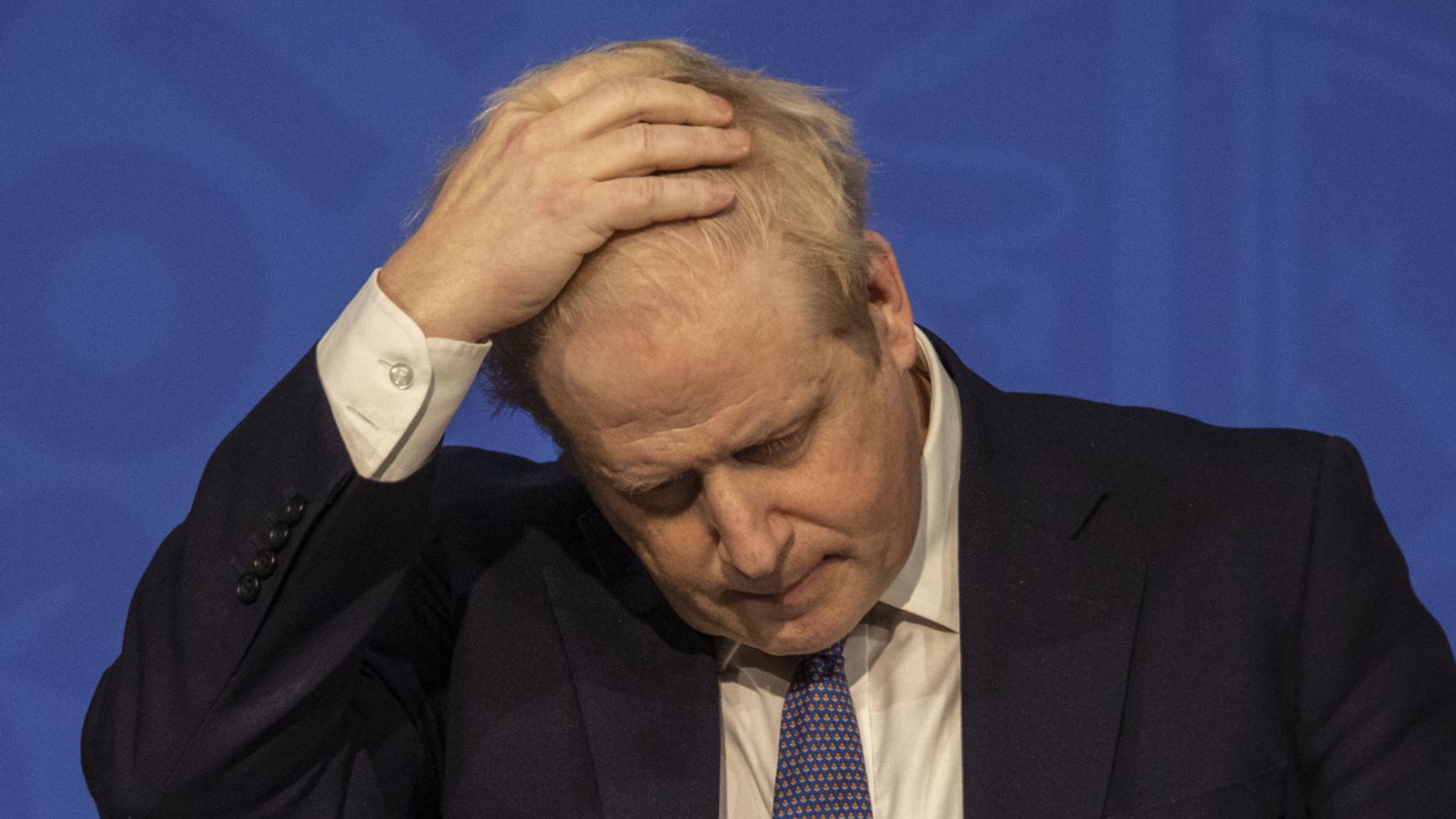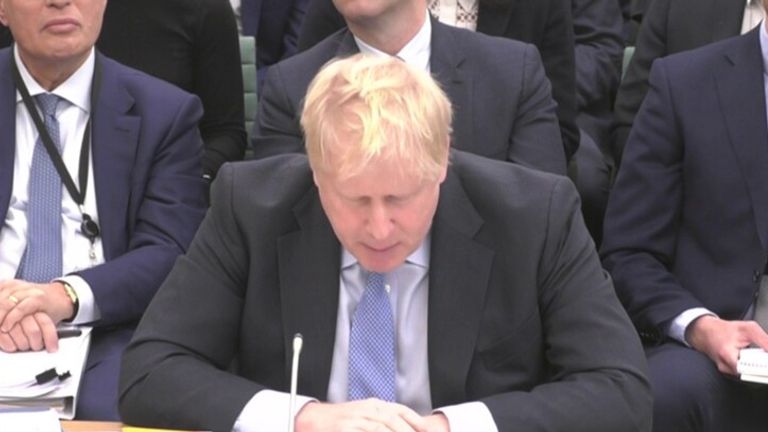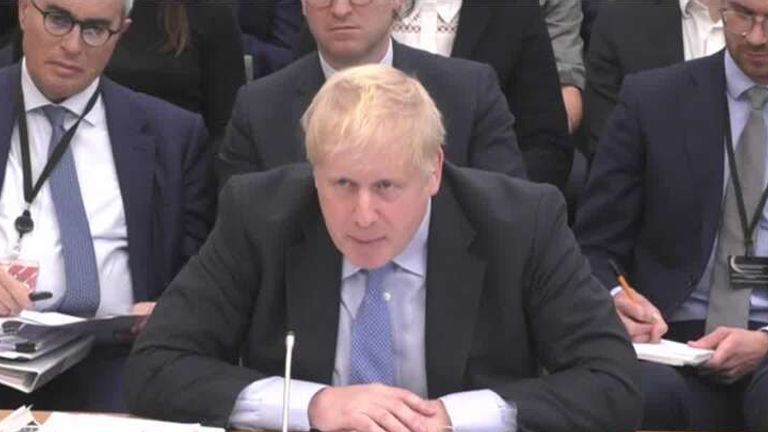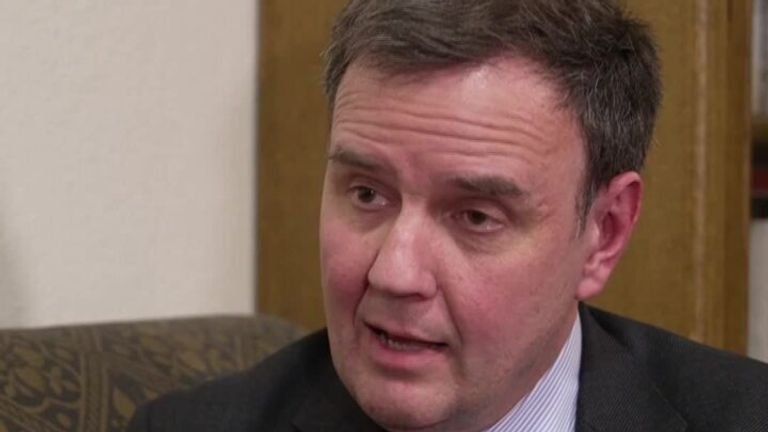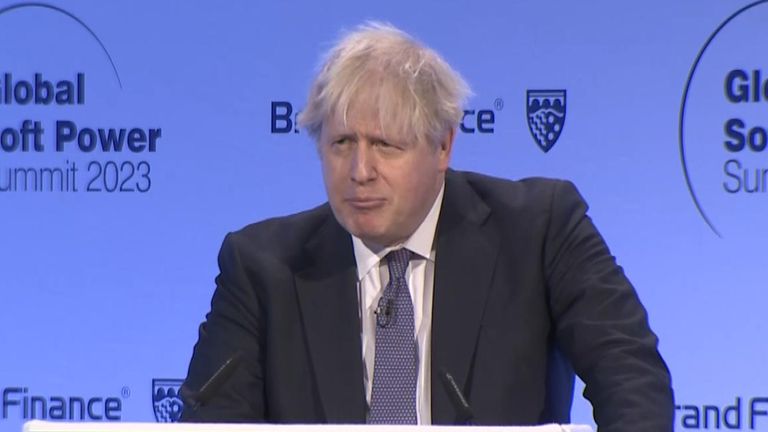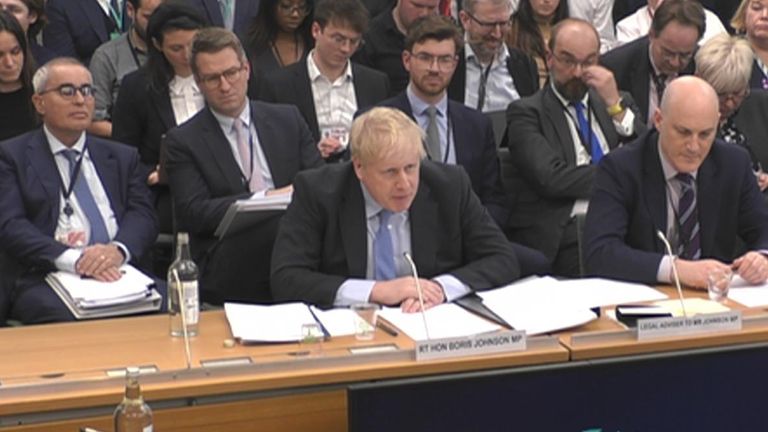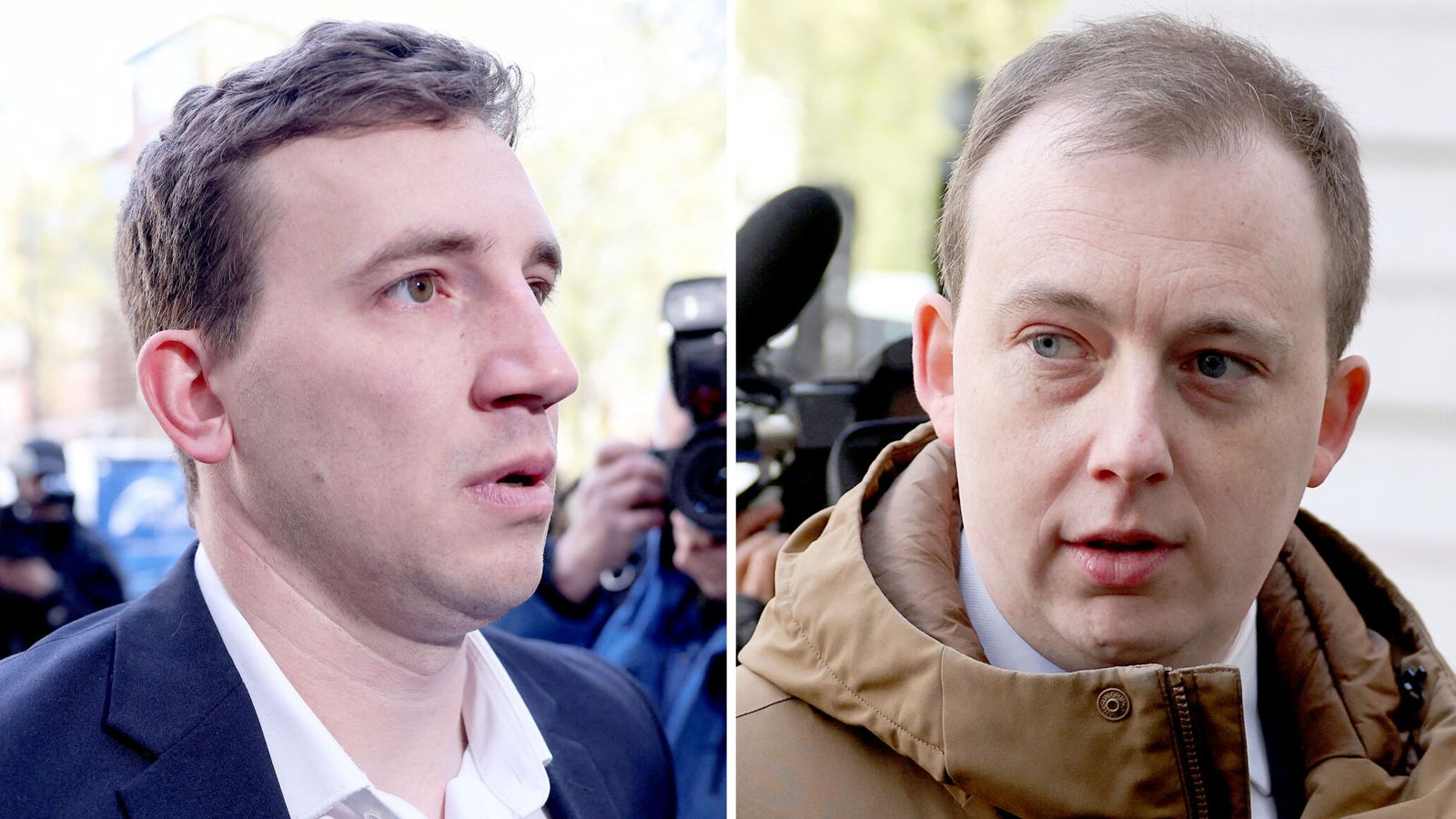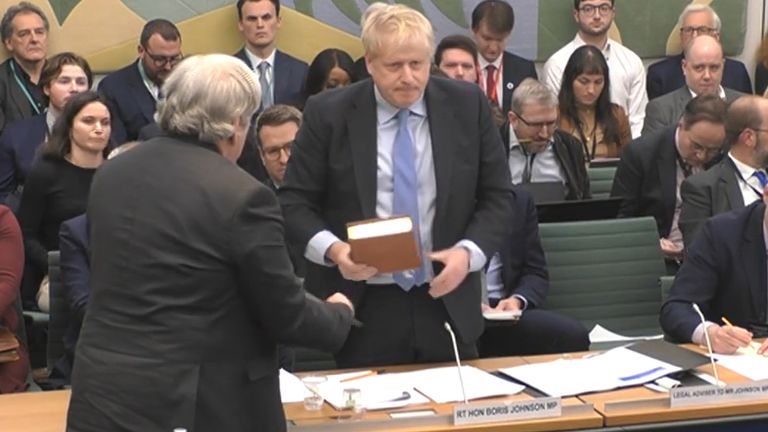
Boris Johnson was always painfully aware of how the privileges committee held his political future in its hands.
For months there has been speculation about what conclusion it would reach in its investigation into whether he knowingly misled MPs with his statements about parties in Downing Street.
In the worst reading, the committee would have recommended a suspension of 10 days or more, creating the potential for a by-election in his marginal constituency of Uxbridge and South Ruislip – a move that could have seen Mr Johnson ousted by his electorate.
Ultimately, it looks like he decided to jump before he was pushed.
Live updates:
Reaction as Boris Johnson ‘throws in the towel’
In his shock decision to resign, the former prime minister was unequivocal about who and what was to blame for his early exit from parliament.
“It is very sad to be leaving parliament – at least for now – but above all I am bewildered and appalled that I can be forced out, anti-democratically, by a committee chaired and managed by Harriet Harman with such egregious bias,” he wrote.
He went on to say that, having received the committee’s findings, he had concluded it was “determined to use the proceedings against me to drive me out of parliament”.
The blunt statement was a decent summation of how Mr Johnson has felt about the investigation by the privileges committee investigation into whether he misled MPs with his statements on parties in Downing Street.
The cross-party Commons committee, led by Labour stalwart Ms Harman but with a Conservative majority, began the investigation into Mr Johnson last June.
They have been assessing whether Mr Johnson misled MPs with his statements to parliament claiming all COVID rules and guidance were followed by Number 10 during lockdown gatherings.
The MPs have collected evidence, including WhatsApps, emails and photos, from those who were at the parties and those with knowledge of them.
While the committee has been gathering oral and written evidence from many witnesses, the former prime minister is the only person to have given evidence in public.
In March this year, he spent more than three hours answering questions about what he knew about No 10 lockdown gatherings.
This is what happened during that session:
Swearing on the bible
Mr Johnson swore an oath on a King James bible to tell “the truth, the whole truth, and nothing but the truth, so help me God”.
It had been more than 10 years since a parliamentary evidence session had started this way and meant his testimony was subject to the Perjury Act of 1911, so lying or providing a false account would be a criminal offence.
‘I did not lie’
Shortly after swearing on the bible, Mr Johnson told the committee: “Hand on heart, I did not lie to the House.”
Read more:
Committee: COVID rule breaches would have been obvious to Johnson
What punishment could Johnson face if he misled MPs?
‘Absolutely essential’ to hold leaving do
Some of the five events attended by Mr Johnson were leaving dos for staff and took place when two or more people were not allowed to meet up indoors apart from essential work purposes, with social distancing maintained.
The former PM told the committee: “I believe it was absolutely essential for work purposes.
“I will believe til the day I die that it was my job to thank staff for what they had done, especially during a crisis like COVID, which kept coming back, which seemed to have no end.
“And when people’s morale did, I’m afraid, begin to sink.”
‘Hindsight is a wonderful thing’
Asked if he questioned whether any events he was going to would be breaking lockdown rules, Mr Johnson said: “Hindsight is a wonderful thing.
“In retrospect, I might have thought about some things, post-Sue Gray, post-the beginning of the coming to light of everything that did come to light.
“But no. At the time I thought we were working. I thought we were working. I promise you that is what officials in No 10 thought they were doing as well.”
People are ‘quite wrong’
About two hours into the lengthy session, Mr Johnson appeared to lose his temper as he defended the No 10 events.
Asked if he would have advised anyone else in the country at the time to hold a large-scale social gathering in the garden, he insisted it “was not a large social gathering, it was a gathering”.
“I really must insist this point, people who say that we were partying in lockdown simply do not know what they are talking about,” he said.
“People who say that event was a purely social gathering are quite wrong.
“My purpose there was to thank the staff, to motivate them in what had been a very difficult time and what was also a very difficult day in which the cabinet secretary had just resigned.”
Assurances from staff
Mr Johnson’s defence rested on the fact, he said, he had received assurances from senior staff the gatherings were not breaking the rules.
But chair Ms Harman was unimpressed by his claims, calling the assurances “flimsy”.
“You were there at the time, so it’s a bit hard to understand what the nature of an assurance is when you have been there and seen it with your own eyes,” she said.
“I mean, if I was going 100 miles an hour and I saw the speedometer saying 100 miles an hour, it would be a bit odd, wouldn’t it, if I said, somebody assured me that it wasn’t.”
‘Complete nonsense’
The former PM lost his cool with a fellow Tory MP after Sir Bernard Jenkin suggested he did not seek “proper” advice before telling MPs no lockdown parties took place in Downing Street.
“This is complete nonsense, I mean, complete nonsense,” he said. “I asked the relevant people,” he said.
“They were senior people. They had been working very hard. [Downing Street communications director] Jack Doyle gave me a clear account of what had happened.”
Fixed penalty notice ‘boggled my mind’
Following the Met Police investigation into partygate, Mr Johnson was fined for one event – his own birthday party in June 2020, held in Downing Street’s Cabinet Room.
He told the committee he thought it was a work event and the fine “boggled my mind because I couldn’t understand why I got it”.
Impossible to social distance in Downing Street
The ex-PM said social distancing was nigh on impossible in Downing Street due to it being a “cramped, narrow, 18th Century townhouse”.
He said they avoided physical contact and gave way to each other in corridors “but it would have been impossible to have a drill sergeant measuring the distance between us all hours of the day and night, so, as the guidance prescribes, we had mitigations”.
Mr Johnson added later: “It was always the case that we understood that the confines of No 10 were going to make it impossible the whole time to enforce total social distancing, as it were with an electric forcefield around every individual.”
‘Unfair committee’
The former PM also accused the committee of being unfair and said they had found “nothing incriminating” – a theme he returned to in his resignation statement.
He claimed they banned him from publishing a “large number of extracts” he was relying on for his defence.
“That is manifestly unfair. Instead, and in the absence of any evidence that I deliberately misled parliament, the committee is trying to mount an argument that I must have known that the guidance was not being followed,” he added.

